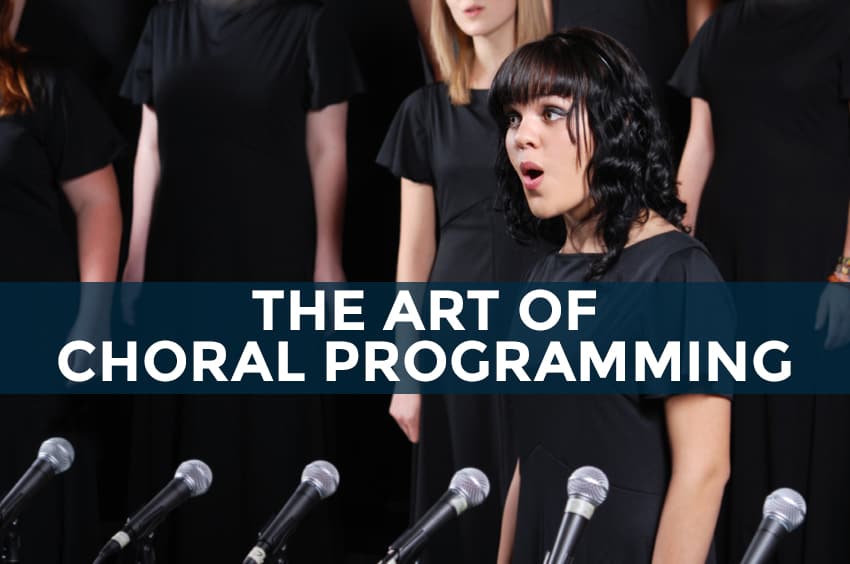The Art of Choral Music Programming
Musicnotes is thrilled to announce the addition of renowned choral conductor, composer, arranger, artistic director and vocalist Jonathan Miller to the team. Jonathan joins us while continuing his work with Chicago a cappella, an esteemed ensemble of professional singers he founded in 1993. In add

Musicnotes is thrilled to announce the addition of renowned choral conductor, composer, arranger, artistic director and vocalist Jonathan Miller to the team. Jonathan joins us while continuing his work with Chicago a cappella, an esteemed ensemble of professional singers he founded in 1993. In addition to overseeing the Musicnotes choral sheet music offerings, Jonathan graciously agreed to share his insights and expertise on choral arranging, vocal well-being, repertoire suggestions, choral music programming and more with all of us on the Musicnotes Blog. In fact, the latter topic he’s touching on today.
I am excited to be joining the Musicnotes team. I think one of the reasons I was tapped for this position is that, for 21 years, I’ve been asking the question, “How can I create choral concerts that are so interesting that I myself would want to show up?” In the professional vocal ensemble that I lead, I can’t just assume that people will pay to hear us. We have to earn their trust (and ticket sales) with something of real quality. We have to offer something compelling enough to have people leave 500 channels on cable and YouTube videos and, instead, go hear a live performance.
A lot of what I do here at Musicnotes involves choosing repertoire—giving you and your ensembles great things to sing. For more than 35 years I have been active on the choral-music scene in Chicago. In 1993 I founded the virtuoso ensemble Chicago a cappella to provide something unique for Chicago audiences. I wanted to create the most compelling, interesting, and beautifully sung choral-music experiences possible.
I’ll be contributing guest blogs here from time to time. With this first column, I thought I’d outline some of the principles that guide me in programming, in the hope that some of them might be useful to you. These apply to all sorts of programs—solo and group recitals, band concerts, and so on.
The most important principle is this:
- Only program music about which you are personally excited. Everything else follows from that.
- High school and collegiate a cappella groups do this pretty much all the time. The rest of us can learn from their enthusiasm.
Other principles:
- Mix it up.
- How eclectic are your personal tastes? How can you use them?
- Be committed to your musical choices. This is part of being a leader.
- If you are personally committed to a piece, share your excitement with your singers. Sharing your own heart is the best way to get others excited about the music you pick.
Some more questions to ask yourself:
- Who’s your audience?
- If you’re directing a school choir and know that you’ll get lots of parents in your audience, what music do they like? Can you find arrangements of songs from their youthful years? That might get them on their feet.
- Do you have a personal bucket list of repertoire?
- Are you working down that list? A more extreme version: If you only had one concert left to program in your life, what would be on it? (And if you’re not sharing that music with your audiences, why not?)
I also would like to recommend a terrific, brand-new resource: Compelling Choral Concerts, written by my longtime colleague Linda Crabtree Powell and her collaborators. She demystifies the practice of creating great programs and provides many samples of successful concerts.
Watch this space for more tips and encouragement on the wonderful art of choral programming, and find an ever-expanding selection of downloadable choral sheet music at Musicnotes.com. If you’re having trouble finding particular repertoire, please contact us and let us know.

